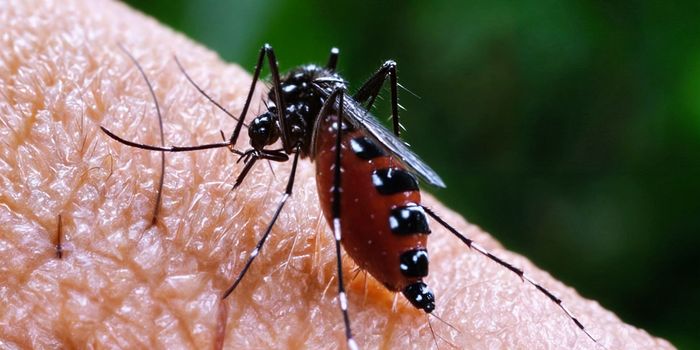How Malaria Protects Itself from the Immune System
A specific parasitic species causes the most deaths from malaria: Plasmodium falciparum. This parasite does so by avoiding detection and destruction mechanisms normally deployed by the immune system to address pathogenic infections. In a new study, a research team seeks to understand how P. falciparum works in hopes of manipulating its activities to improve future malaria treatments.
Malaria is caused by parasites like P. falciparum that are transmitted to humans through mosquito bites. Symptoms include fever, chills, and other flu-like sensations. Without antimalaria drugs, the disease can cause complications that result in death. P. falciparum is responsible for more than 95% of deaths caused by malaria worldwide every year.
Normally, red blood cells infected with malaria parasites circulate through the bloodstream and are eventually filtered through the spleen where immune cells identify and attack infected cells. P. falciparum avoids this form of detection by producing “sticky” proteins that are ultimately displayed on the cell surface of red blood cells. These proteins cause blood cells to stick together, as well as to stick to blood vessel walls. In addition to preventing infected cells from passing through the spleen “checkpoint,” this activity increases the risk for dangerous blood clots.
"This malaria parasite species is able to use a number of different variants of the same protein to make red blood cells sticky,” explained co-lead author Heledd Davies. “So, if the body develops antibodies that stop one variant working, the parasite can simply switch to another one, leading to a constant arms race."
Researchers sought to understand exactly how P. falciparum successfully created “sticky” cells so that, in theory, they could improve malaria treatment by preventing this stickiness and allowing the immune system to properly filter out infected cells. They identified various protein kinases involved in transporting “sticky” proteins to the surface of red blood cells. Kinases are proteins that activate or deactivate other proteins involved in important cellular processes.
The kinases identified in the study are unique to the P. falciparum parasitic strain and likely involved in what makes related cases of malaria so lethal. In an experiment, researchers removed different protein kinases from P. falciparum while the parasite was actively living in human blood, ultimately identifying one with a crucial role in regulating the “sticky” effect. Further unidentified proteins may be of interest as well.
Sources: The Francis Crick Institute, Nature Microbiology, Centers for Disease Control and Prevention








